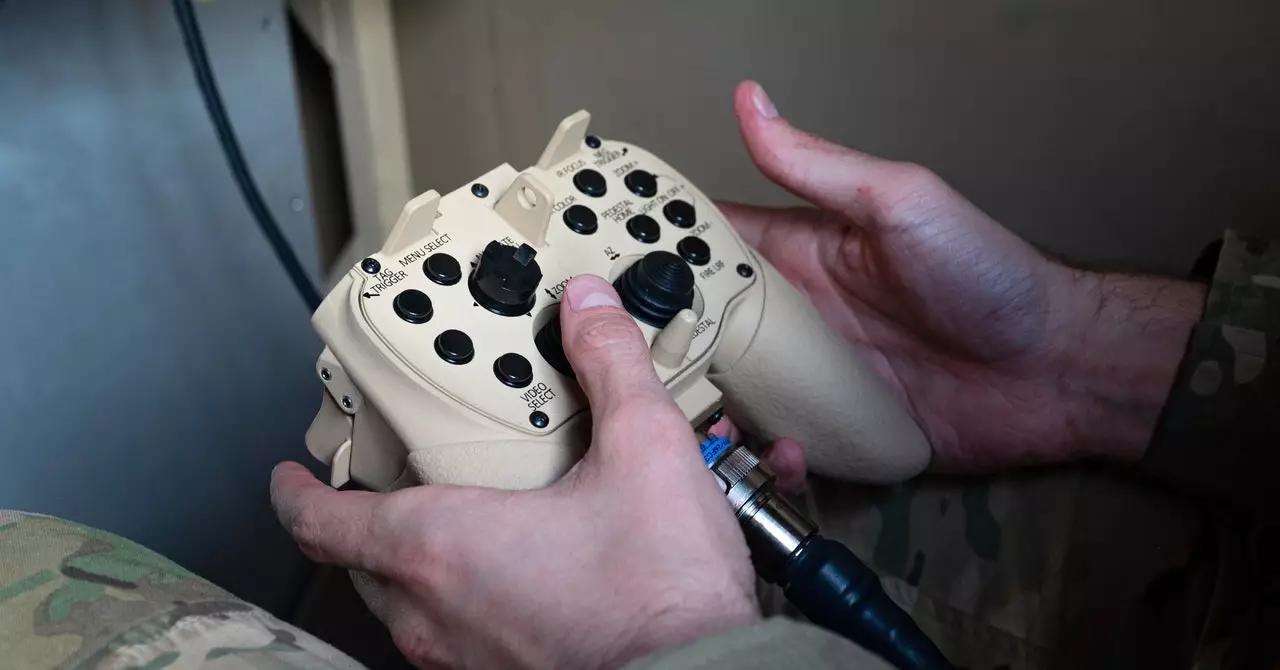The technological landscape of modern warfare is evolving at an unprecedented pace, with innovative weaponry becoming more integrated with advanced control systems. One of the most striking developments is the increasing use of game controller-like technology in military operations. This paradigm shift, spearheaded by the adoption of the Freedom of Movement Control Unit (FMCU), points toward a future where American troops engage with their weapon systems in a manner that will be both familiar and intuitive to younger generations raised in the age of gaming.
The FMCU has emerged as a center point of this transformation, serving as the primary control unit for a plethora of advanced weapons systems. The resemblance to commercial gaming controllers, like those from Xbox and PlayStation, is no coincidence. The design is deliberately user-friendly, combining high functionality with accessibility to enhance the operational capabilities of service members. By employing technology that resonates with the intuition of young recruits, the military has thus taken a significant step toward optimizing training and reducing the learning curve associated with complex equipment.
This trend reflects a broader recognition within the Department of Defense (DoD) about the necessity of adapting to the culture and practices of contemporary society. Interestingly, the incorporation of technology derived from the gaming industry speaks to a strategic move away from antiquated methodologies that often rely on complex controls and interfaces, which might overwhelm operators in high-stakes scenarios.
The FMCU has already found itself at the helm of several leading-edge military applications. For instance, the Navy Marine Corps Expeditionary Ship Interdiction System (NMESIS) launcher will utilize this innovation to maneuver the Naval Strike Missile, which stands as a critical asset for the Marine Corps in potential confrontations with near-peer adversaries. Similarly, the Army’s M-SHORAD system is being outfitted with the FMCU, enabling it to engage and neutralize aerial threats effectively.
In the realm of air-force capabilities, the FMCU is also integrated into the Recovery of Air Bases Denied by Ordnance (RADBO) system, employing a laser apparatus to clear explosive remnants of war. Such multifunctional systems underscore the multiplicity of applications for the FMCU, proving its versatility as a control tool in diverse operational theaters. The integration extends even further to unmanned vehicles, showcasing the FMCU’s potential to act as the nerve center for autonomous systems, thereby elevating combat efficiency.
An often-overlooked component in this technological evolution is Measurement Systems Inc. (MSI), a subsidiary of Ultra, tasked with designing these controllers. Since 2008, MSI has specialized in crafting hardware that fuses the ruggedness required for military operations with an interface that resonates with a new generation of soldiers. Leveraging insights gained from commercial technologies, MSI aligns its advancements with the overarching objective of providing optimal human-machine interaction that meets the needs of the modern battlefield.
By collaborating with defense titans like Boeing, Lockheed Martin, and BAE Systems, MSI has positioned itself as a key player in the military-contracting ecosystem, ensuring that its innovations meet stringent military specifications while remaining user-centered.
Ultra’s assertion regarding the FMCU being “highly configurable and powerful” underscores a vital aspect of modern military equipment. Customizability allows for adaptations that cater to specific mission profiles, providing troops with the necessary agility to respond to a dynamically shifting battlefield. The implications of this technology extend beyond mere user comfort; the increased efficiency in controlling systems can lead to rapid decision-making processes, potentially altering the outcome of engagements.
As the world edges toward a future where technological dominance is intricately linked with military prowess, the integration of gaming technologies into weapon systems represents a significant departure from traditional paradigms. The FMCU’s evolution suggests that the future battlefield may be populated not just with advanced weaponry but equipped with operators who handle their machines with the same ease as navigating their favorite video games—a striking testament to how warfare and contemporary culture continue to intertwine.
Ultimately, this blend of familiar technology and high-stakes military operations may redefine combat operations, fostering a generation of soldiers who adapt quickly and proficiently amidst the chaos of war.


Leave a Reply